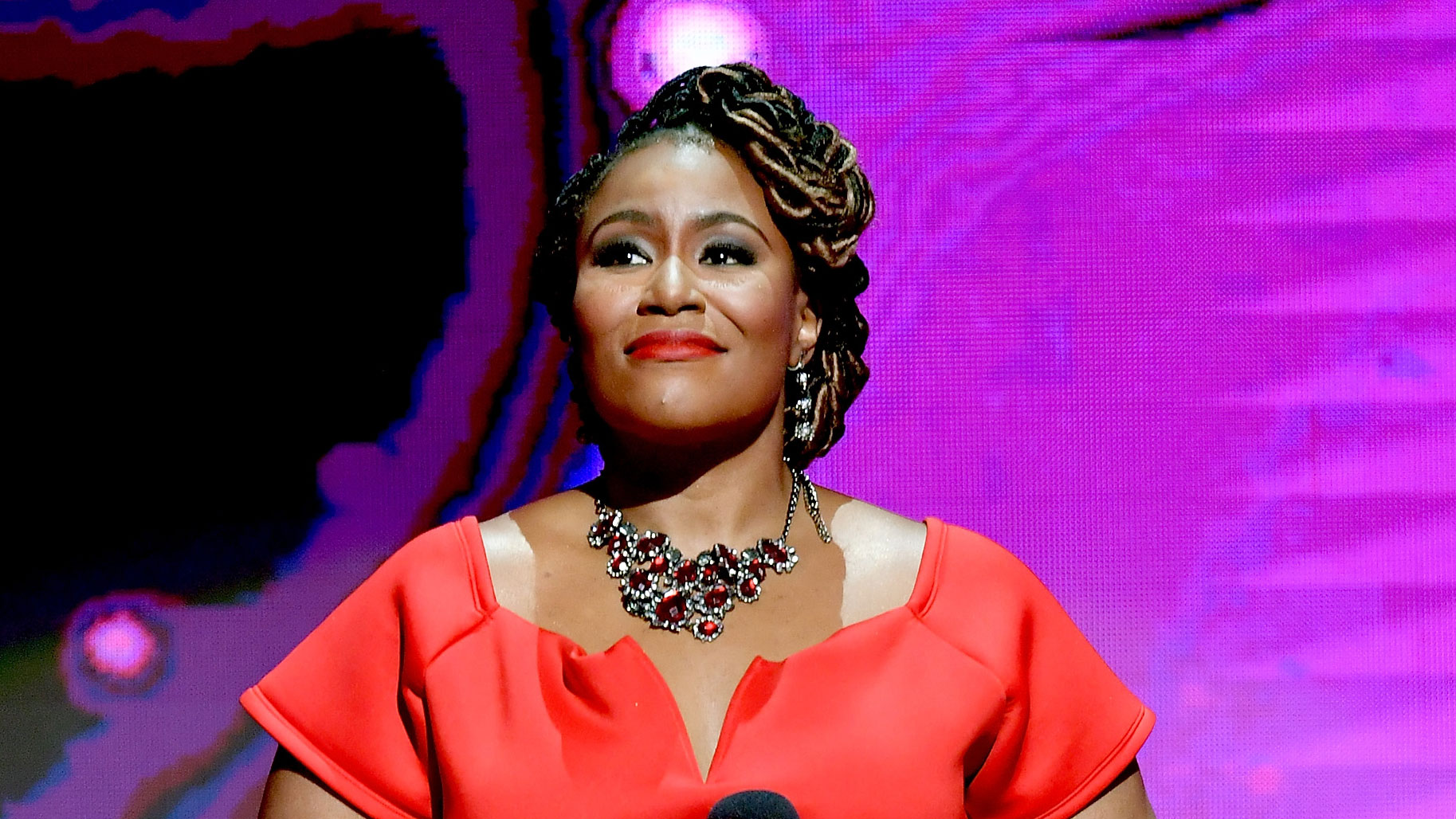Voters may have overwhelmingly elected a black man as president in 2008, but broadcast TV decision makers still don’t fully believe mainstream audiences will embrace a drama series with a black lead unless coupled with a white actor or as part of a large, multiracial ensemble cast. And don't even consider two black leads carrying a drama series on a major network.
“Lost” creator J.J. Abrams may change that perception with his anticipated new show on NBC, “Undercovers,” which debuts Sept. 23. (TODAYshow.com is a part of msnbc.com, which is a joint venture between Microsoft and NBC Universal.)
The drama stars Boris Kodjoe and Gugu Mbatha-Raw as Steven and Samantha Bloom, a married couple who were once spies and are now getting back into the business. At the core, the show is a brightly written romantic adventure with two strong leading characters who happen to be black.
"We don't consider what we are doing as revolutionizing TV, but we do realize it is a big deal," producer Josh Reims said of the decision. "We all wish it wasn't such a big deal that there are two black characters who are the leads on a major TV show on a major network, but unfortunately, that's the way it is right now."
No 'affirmative action guy'
Even Kodjoe had his doubts about the casting. Twice he refused to audition for the plum role of the dashing spy. Landing a starring spot on a potential network hit was tempting, but Kodjoe was sure it would be a waste of time to fly down to Los Angeles from Toronto, where he was filming "Resident Evil: Afterlife," for a role he was sure he would never get.
"I just decided I wasn’t going to be the affirmative action guy," Kodjoe said of the practice of auditioning minorities for roles. "Everybody says you did a great job. Then you get the call they ‘went another way,’ which means they went with a white actor. (The color of your skin) is something you have no control over. After a while, it wears you out.”
He was finally persuaded that Reims and Abrams were serious about casting non-white actors in the roles if they could find the right actors. The veteran producers knew exactly what they didn't want to see in their two prospective leads: the same homogenous actors playing in every other series on the air.
U.S. & World
"We wanted (our series) to look different," said Reims, who previously worked with Abrams on "Felicity." "We didn't go out of our way to say we are hiring two black people to be the leads of the show. But we (knew) it would be great if we could do that."
A novelty
Perhaps the show will gain some good vibes from the fact that Bill Cosby broke the TV drama series color barrier as a globe-trotting spy in 1965’s “I Spy.” Incredibly, almost a half century after Cosby's groundbreaking role — for which he snagged three Emmys — black leads are still considered a novelty on broadcast television.
“I think Hollywood is little behind when it comes to what our society accepts and what they put on the screen,” said Linda Williams, professor of film and media at UC Berkeley and author of "Playing the Race Card: Melodramas of Black and White from Uncle Tom to O.J. Simpson." “The industry hasn’t been very adventuresome in casting. It hasn’t been proven people won’t watch a show because of the color of the leads. You have to let the show speak for itself.”
Hollywood's decision makers, who are reluctant to go on the record, point to the fact that many talented black actors — including James Earl Jones, Andre Braugher and Taye Diggs — all have fronted drama series that have failed to thrive. As recently as last season, "NCIS: Los Angeles" with LL Cool J was the only broadcast pilot with a minority lead — and he was teamed with white actor Chris O'Donnell.
“I think in all of those cases, the programs that failed weren’t written well enough or (didn't have) good enough time slots to survive. Most shows fail, so that isn’t surprising. The problem is that there hasn’t been a success yet,” said David Bianculli, who teaches TV history at New Jersey’s Rowan University and is the TV critic for NPR's Fresh Air. “Society isn’t making the pronouncement that they don’t want two black leads. We’re well past that point. But it is going to take a hit show for people in Hollywood to accept it.”
The right fit
When word came that Abrams and Reims were looking at color-blind casting with not one but two black leads for their high-profile series, Kodjoe wasn't convinced they could pull it off.
"I guess I was ignorant. I thought there was no way J.J. Abrams was going to cast this show with anyone other than a white leading actor," Kodjoe said. "But when I got to meet him, we clicked instantly. We have the same sense of humor, very dry and sarcastic. Then he called and asked if I wanted to go on the journey with him."
Kodjoe, 37, a German actor who came to the States in his 20s, may have had some reservations about going for the role, but British actress Gugu Mbatha-Raw had no such thoughts before jumping into her audition for the role of Samantha Bloom.
"Coming from the U.K., I have a different cultural legacy and was pretty naive to the whole thing. I just thought of it as another audition," said Mbatha-Raw, 27, who arrived in the U.S. last year for the first time to do "Hamlet" on Broadway with Jude Law. "This was the first television role I'd ever gone out for in the States. It didn't cross my mind that I was doing anything out of the ordinary."
Instead, she latched on to the riveting, fast-paced script that allows her to play multiple characters as she goes undercover. And she was intrigued by the notion her character was in a committed relationship with her husband.
"I could do roles within roles, which offered a great challenge to be stretched as an actress," Mbatha-Raw said. "With the elements of the thriller, and chances to do fights and stuff, and the relationship story, it was quite an attractive package."
Kodjoe said it is rare for any actor to have the opportunity for a multifaceted role such as Samantha and Steven Bloom’s on television, and he's hoping audiences are ready to embrace a show that stands on its own merits.
"I know that it shouldn’t be extraordinary to have black actors in these kinds of roles. This is 2010 and this is what the world looks like, so it should not be such a historical move," Kodjoe said. "We are spies who happen to be black. Hopefully in the future, other TV executives will take 'Undercovers' as an inspiration to reflect the world as it is."



